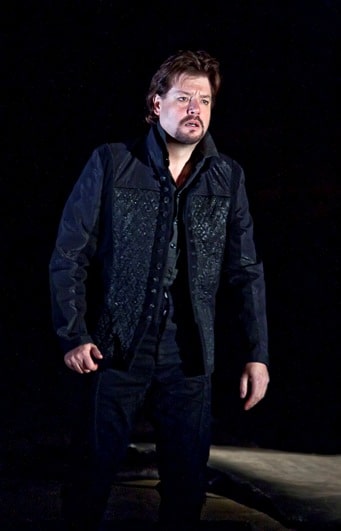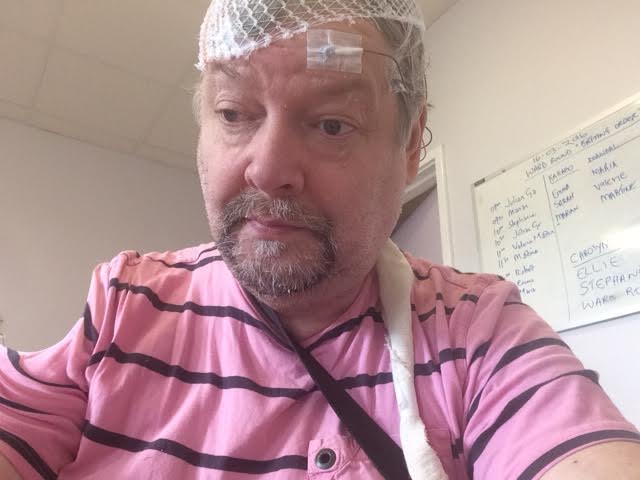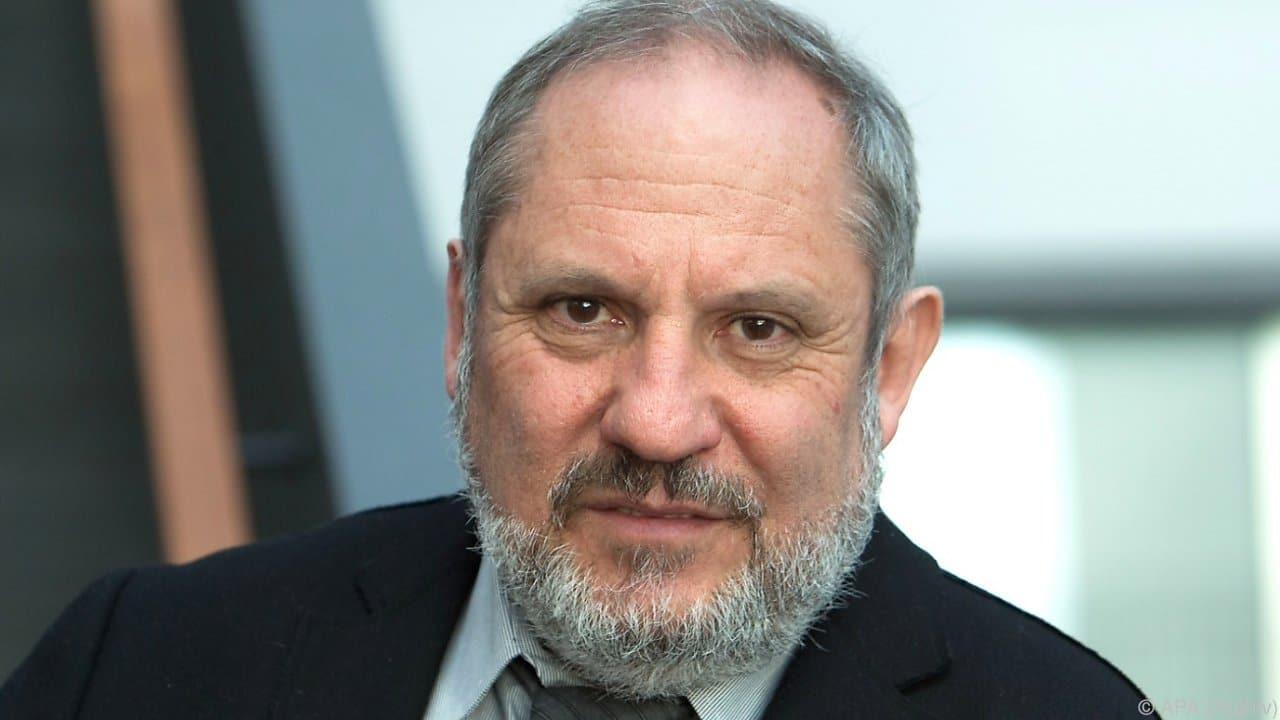Six years ago, Julian Gavin was one of the busiest operatic tenors on the circuit, popular with colleagues and audiences alike. He caused a stir by withdrawing from Calixto Bieito’s toilet-singing Ballo in 2002, calling it ‘an act of artistic vandalism’. He made his Vienna debut as Don José in Carmen took over in Don Carlos from Roberto Alagna and made it his calling-card. He was a stalwart at English National Opera and Opera Australia. His diary was full of work for years ahead. And then he disappeared.
Now Julian tells the full story of what happened to him here for the first time. He wrote this article during nine weeks of renewed treatment at the National Hospital for Neurology in London. We salute his courage.

I remember the moment that I first learnt the significance of these three letters, ABI, and their specific application to my circumstances.
Acquired Brain Injury.
Needless to say, these are not letters after my name that I would have willingly sought after at any time, yet I can’t help wondering whether I might have brought it upon myself.
Firstly, at the risk of being flippant, I used to joke that I was envious of Andrea Bocelli with his distinctive title as the blind tenor. What could I be? The Australian Tenor? No, too many neighbours jockeying for position of that to be a viable singularity. The deaf tenor; rejected for obvious reasons,. The same thing applied to the Dumb tenor. There are already enough jokes about us to make it a cliche. However, I can honestly say that The Brain Damaged Tenor was not a sobriquet that I would have willingly chosen for myself!
In all seriousness though, I do wonder whether the lifestyle of an international opera singer might have had some direct bearing on my mental and physical health.. Perhaps it was the fact that I carried a tuning fork with me for getting the correct pitches when warming up in my dressing room and I would get it vibrating by banging it on the side of my head. Maybe there was just one blow. Whatever the reason, I don’t expect to get an answer this side of eternity but I wanted to try to tell the story of the past five years and chronicle the devastating effects that they have had on me and those whom I love most dearly. There is also a strongly positive motivation for undertaking this task. Now that I am starting to emerge from the worst of the difficulties and I can look to the future with some degree of hope, I realise with great humility and awe just how many people have helped to get me to this point and I want to honour them.
In order to do that I need to head back to 2010. It was during the second half of the year that I started to notice some unusual symptoms. The year itself had proven to be the most successful, rewarding yet demanding thus far. It began with a hugely successful run of performances of Manon in Sydney. Des Grieux is one of my favourite roles and I had a suspicion that this might be the last time that I would get to sing it so I put everything into it.
At the same time I was preparing for my first performance of La Damnation de Faust which followed on in Melbourne straight after the Manon. The lead up to this performance proved to be one of the most difficult ever. It is an enormously demanding role but it worked out well and the late, great John Amis was generous in his praise for my contribution.
The next job was one that was very close to my heart. My sister and I had the opportunity to record two of my mother’s song cycles for a small independent label in Australia. Due to my subsequent illness, its release was significantly delayed and it has only just arrived on the market in the last couple of months.
Please allow me to digress with a shameless plug. If you go to tallpoppies.au.com you will find more information about the disc and how to purchase it. I am proud that were were able to get this music into the public domain where it belongs, a worthy addition to the great tapestry of twentieth century English song. I returned to London in mid February for a matter of days before flying to Moscow for a televised performance of Carmen with Pletnev. Shortly after returning to London I began a very intense rehearsal period for Catherine Malfitano’s new production of Tosca. This turned out to be a considerable artistic and box office success and something that I remain proud to have been involved in. During the long run of performances we lost one of our dearest friends to cancer. My wife Lisa spent countless hours at her bedside in the weeks leading up to her death. At the same time we were undergoing frantic preparations for our second daughter’s marriage, less than a year after daughter number one. During the second half of the Tosca run I began rehearsals for Francesca da Rimini
I have gone into some detail about the workload that I had undertaken in 2010 not because it was particularly out of the ordinary, but more because I believe, with hindsight, that there is a connection with the strange symptoms that I started to experience in the second half of the year. It started with what I can only describe as chronic fatigue. No matter how much I slept, I awoke feeling wretched and exhausted. I felt as if I was permanently jet lagged. During the rehearsals for Francesca da Rimini, whenever I was not deployed on stage I would sit down at the side of the stage and promptly fall asleep much to the amusement of my colleagues. Driving home after performances was a perilous battle of willpower to stay awake.
Shortly after my daughter’s wedding, I flew to Australia for my first Radames. I was totally shattered after the flight and even though I had prepared the role with great care I was, uncharacteristically, having trouble with memory. The performances went off successfully but I had to have stage management checking on me to make sure that I hadn’t nodded off between scenes. I knew that there was something seriously wrong when, having dinner with some dear friends who had flown up to Brisbane from Melbourne to see the opera, I broke down and started crying while describing the symptoms that I was experiencing.
I had five short weeks home in London before undertaking, yet again, the epic journey of a day in an aeroplane back to Australia at the beginning of December for the Zambello production of Carmen. I saw my doctor who diagnosed stress and exhaustion and recommended r&r. This resulted in round the clock sleeping where I would only emerge from the black lagoon of the bedroom to forage for platefuls of carbohydrates and sugar laden food.
The date of departure arrived and I awoke with an almost overwhelming sense of dread. The thought of leaving the bosom of the family for nearly 3 months was devastating. The trip out to Heathrow was funereally quiet. I only found out later that Lisa was wrestling with a powerful compulsion to turn the car around and take me home. At the drop-off point we clung to each other in desperation and I sobbed like a baby.
“It’s only a few weeks and you’ll be busy”.Lisa tried to console but she was already starting to lose her fragile equilibrium. We were attracting attention and a gathering storm of security attendants meant that our farewell was all too brief. Little did either of us know that our separation was also destined to be very brief.
I arrived in Melbourne in a state of collapse. My brother-in-law, a dentist (and also a very fine tenor) managed to work out that the problem was neurological in origin. Shortly afterwards we arrived at our destination. As I greeted my sister, I saw the look of shock on her face. She and her husband were performing in a Carols by Candlelight that evening. I slept while they were out so it seemed as though they had been away a matter of minutes when my sister burst through the door and bundled me in the car and took me off to the Austin Hospital.
After a seemingly endless barrage of questions, a barrowful of blood tests, an M.R.I. An E.E.G. A couple of E.C.G.s, more questions, memory tests, co-ordination tests, the team arrived with their preliminary diagnosis. It was an auto-immune encephalitis. My body’s usually efficient immune system had gone into overdrive and the infection had crossed the blood-brain barrier and there was extensive inflammation in the brain that had to be brought under control. This was done with high doses of IV steroid. What I didn’t realise at this stage was that I was in serious danger of not making it. My concern was getting the thing sorted so that I could get up to Sydney and get on with rehearsals.
When I did finally arrive, the shocked looks on the faces of my colleagues were not at all encouraging. I particularly remember Teddy Tahu Rhodes’s terrified look as we began to rehearse the Act 3 knife fight in Carmen. The end result of all this sudden pressure was a massive relapse and we were summoned back to Melbourne. This was also the beginning of the process whereby virtually all of the outstanding international work that I had booked up for the subsequent few seasons was lost. Every time that a decision had to be made, it was clear that I was not well enough to fulfil it. There is not sufficient space for me to go into all the details but basically it meant the loss of my entire income and the repercussions for our family were enormous. But I am getting ahead of myself.
Once we got back to Melbourne , the aim was to stabilise me so we could get back home our family in London and continue with treatment there. It wasn’t until the beginning of February 2011 and my care was transferred to the National Hospital for Neurology, Queen’s Square in London, an excellent institution with which I have become depressingly familiar over the past five years.
They ran all the tests that I had undergone in Melbourne again plus quite a few more and in the process they managed to establish that there had been some damage to the brain from the encephalitis. The main areas of concern were those governing the sleep/wake cycle, it was confirmed by sleep studies that I was suffering from narcolepsy, which meant that I could be forgiven for falling asleep in an Italian restaurant in front of dear friends from overseas! My memory also seriously affected making the learning of new material particularly problematic. I found that I had difficulties with time management. The correct sequencing of simple tasks took much more time than they should have. They also found out that I had hypothyroidism thus explaining why I was wearing a coat indoors while everyone else wore tee-shirts.. To add insult to injury, the life saving treatment for encephalitis kicked me into steroid-induced Type 2 diabetes. My appetite was insatiable and I had to face the ignominy of a sugar addiction, particularly in relation to chocolate. When the lock appeared on the pantry door and I had my credit cards confiscated, I had a dim dawning of realisation that I had a problem on my hands. I completely ruined my youngest son’s gap year. He had stayed home to help me and he had to endure endless game of cat and mouse over food as I undermined the lessons I had taught my children over the paramount importance of truth in all your dealings with other people.
The initial time at Queen’s Square did throw up two things. Firstly, the problem of my eyes was identified. It was a supra nuclear gaze palsy or Parinaud’s syndrome and without going into all the gory details, it meant that I had limited upward and downward gaze and that my eyes didn’t work together anymore. In an indecently short space of time I found myself issued with a walking stick that collapsed down into 4 parts and was self-erecting, which amused the grandchildren when accompanied with a magical incantation, a freedom pass and a certificate declaring that I was officially blind.
The second significant find was the result of a CAT scan which revealed a small cancerous tumour in the tonsillar bed which was the initial driver of the encephalitis. Ironically, the encephalitis turned out to be a life-saver in providing an early warning of the tumour which was removed without the need for any additional radiotherapy, the only downside was that during the operation I’d had to have an emergency tracheotomy which managed to get infected and this really stalled my recovery and knocked my confidence. Just a year after this I had two grand mal seizures which left me in a coma for several days and meant that I had to introduce anti-epileptic medication into the already over-ripe cocktail of drugs. Getting the balance right so that I am able to function on a day to day basis has proven to be an ongoing problem,.
Although I have written far more than was requested, I have only managed to tell a part of the story.There is so much more that I could have written and it was difficult to know what to leave out. I am in the process of writing a book but I haven’t got to this part of the narrative yet, so this document represents my first thoughts on the matter.
I also haven’t really got to grips with what these events have meant for me artistically and emotionally. In some respects, I am still too close to the whole affair to gain the necessary objectivity, but I will make a few observations. Much of the time over the past few years, I have had to play emotional catch up. There was a massive delayed reaction of grief which, when it finally did arrive, threatened to de-rail me and prevent me from taking the very steps that I needed to in order to get back to some semblance of the person I was before the A.B.I.
I desperately missed my colleagues and artistic creativity that is part and parcel of a positive rehearsal period. In fact, as this vital aspect of my being has been largely unsatisfied, it has manifested itself in almost nightly, performance related dreams, no substitute for the real thing.
What has satisfied me though and bodes well for the future has been my teaching. I feel very fortunate indeed to have the opportunity to work with some genuinely talented people. I see my role as that of a mentor and guide who can hopefully help the student avoid the many pitfalls and dangers that surround them. Moreover, it is a privilege and deep responsibility to pass on what I know of an authentic and living tradition.

Julian, recently in hospital
I would like to close, however by singing the songs, in a few short sentences, of the unsung heroes because without them, I would not still be here . Moving from the general to the particular, I can say with absolute certainty that I have experienced the NHS at its best. From the domestic staff through to the nursing staff, to the surgeons and professors who are world leaders in their area of specialisation, I have had first class care. My questions have been answered fully and frankly, my needs have been anticipated rather than just met, and no stone has been left unturned and thus , no expense spared in what has been an extremely complex case. I feel duty bound to get better to repay such noble efforts.
We had the magnificent, life-saving support from three outstanding music charities, Help Musicians UK, The Royal Society if Musicians and The ENO Benevolent Fund. At all times they have been compassionate and sensitive in their dealings with us and their tangible help, together with that of our family and friends in Melbourne and the United States, literately kept a roof over our heads and helped us to avoid losing everything. Moreover, our friends helped us sow the green shoots of recovery for our new life in Bletchingley. They will be named and famed in the forthcoming book. I want to thank my children for their love and support over the past five difficult years. They provide a strong impetus for me to get back to work and repay the trust they have shown me. I am enormously proud of the adults that they have grown into. They approach the challenges that life throws at them with seriousness, integrity and joy.
The final word goes to Lisa, the love of my life. I could write twice the length again of what I have written thus far and still not do justice to what she has done for me. Because of her self-sacrificing love, I am able to declare, once again that I am a half glass full man, looking forward to the future with hope and trustful surrender to Divine providence.
(c) Julian Gavin/Slippedisc




